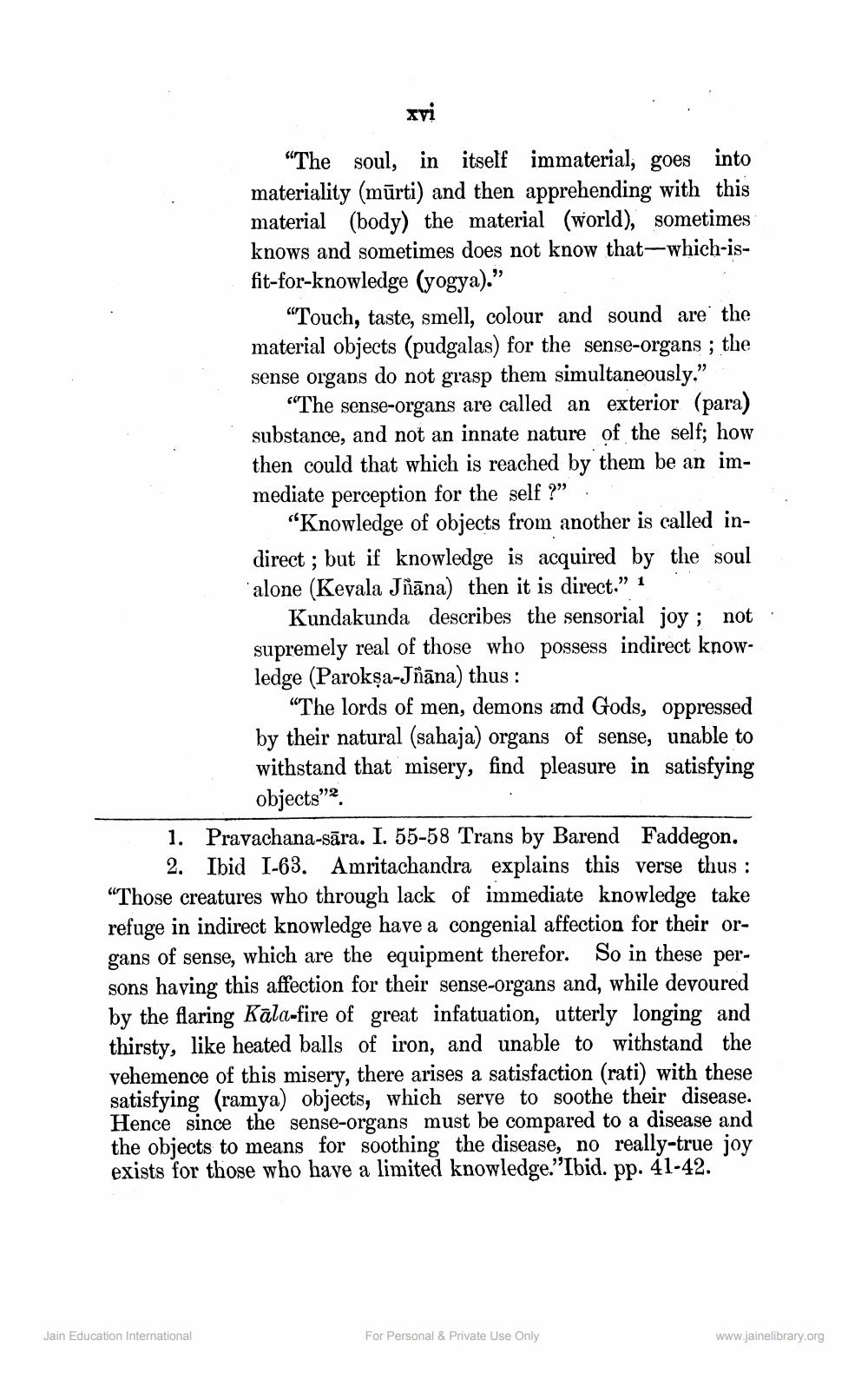________________
Xyi
"The soul, in itself immaterial, goes into materiality (mūrti) and then apprehending with this material (body) the material (world), sometimes knows and sometimes does not know that--which-isfit-for-knowledge (yogya).”
"Touch, taste, smell, colour and sound are the material objects (pudgalas) for the sense-organs ; the sense organs do not grasp them simultaneously."
“The sense-organs are called an exterior (para) substance, and not an innate nature of the self; how then could that which is reached by them be an immediate perception for the self ?”
"Knowledge of objects from another is called indirect ; but if knowledge is acquired by the soul alone (Keyala Jñāna) then it is direct.” 1
Kundakunda describes the sensorial joy ; not supremely real of those who possess indirect knowledge (Parokşa-Jñāna) thus :
"The lords of men, demons and Gods, oppressed by their natural (sahaja) organs of sense, unable to withstand that misery, find pleasure in satisfying
objects". 1. Pravachana-sāra. I. 55-58 Trans by Barend Faddegon.
2. Ibid 1-63. Amritachandra explains this verse thus : "Those creatures who through lack of immediate knowledge take refuge in indirect knowledge have a congenial affection for their organs of sense, which are the equipment therefor. So in these persons having this affection for their sense-organs and, while devoured by the flaring Kāla-fire of great infatuation, utterly longing and thirsty, like heated balls of iron, and unable to withstand the vehemence of this misery, there arises a satisfaction (rati) with these satisfying (ramya) objects, which serve to soothe their disease. Hence since the sense-organs must be compared to a disease and the objects to means for soothing the disease, no really-true joy exists for those who have a limited knowledge."'Ibid. pp. 41-42.
Jain Education International
For Personal & Private Use Only
www.jainelibrary.org




